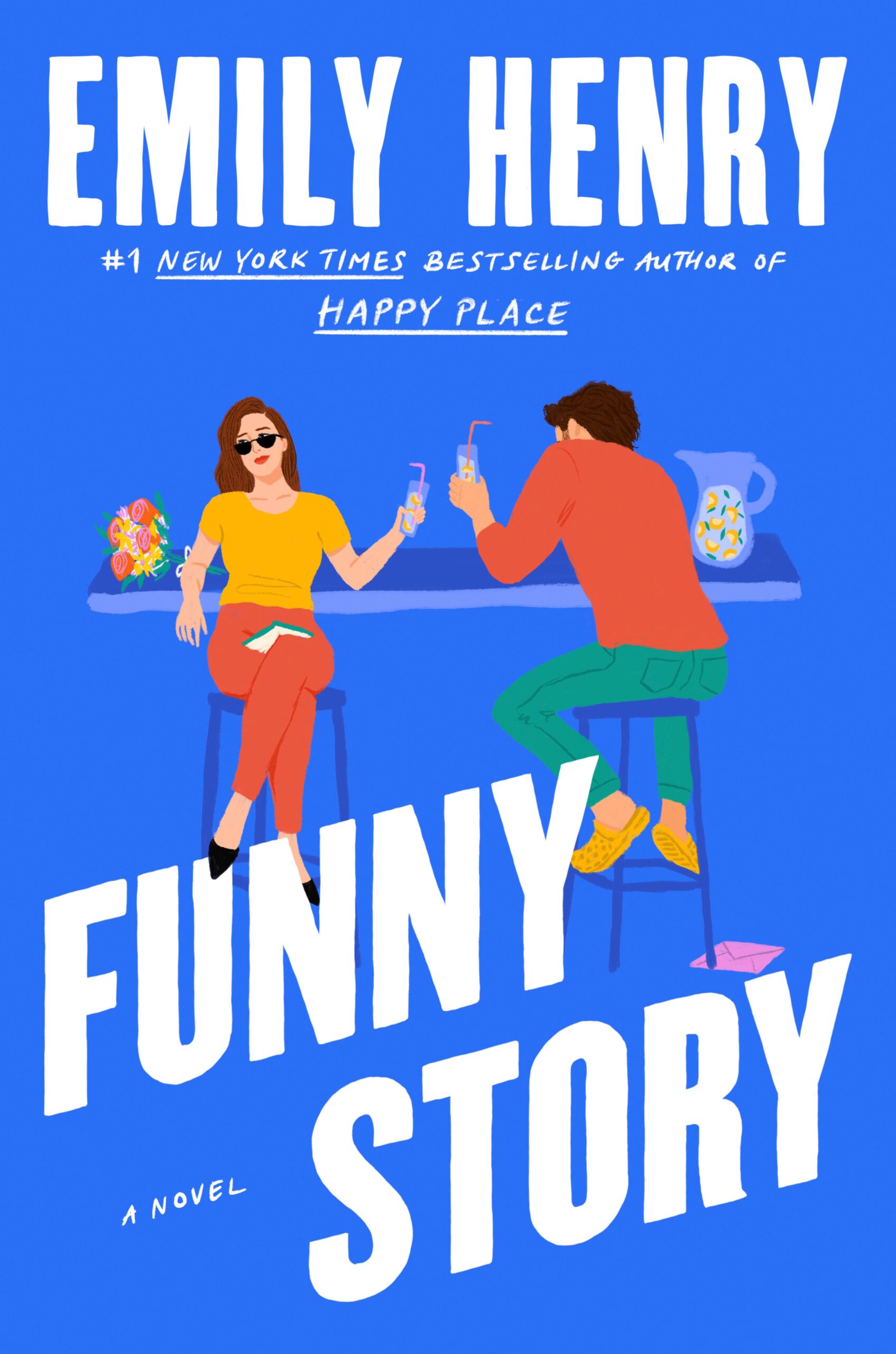Emily Henry has established herself as a formidable force in the world of contemporary romantic comedy literature, and her latest offering, “Funny Story,” is a testament to her prowess. This novel not only continues her legacy as the modern-day queen of romance but also expands upon the nuanced dynamics of love, friendship, and the peculiarities of human interaction. In this review, we will explore the various thematic elements and narrative devices that readers can anticipate, revealing why “Funny Story” is not merely another rom-com but rather a multifaceted exploration of life’s comedic and heartwarming moments.
The first element that strikes readers about “Funny Story” is its deftly constructed characters. Henry has a knack for creating relatable protagonists, and this novel is no exception. The main character, a witty and slightly sardonic woman navigating her career in a whimsical yet challenging environment, embodies the struggle many face in balancing ambition with personal relationships. As the narrative unfolds, readers are invited to accompany her on her journey of self-discovery, punctuated by misadventures and laugh-out-loud moments that are emblematic of Henry’s charming style.
Henry’s character development is profound. Each individual is meticulously crafted, from the quirky best friend who dispenses unorthodox advice to the enigmatic love interest whose complexities add depth and intrigue. This ensemble gets tangled in a web of humor and mishaps, seamlessly blending the personal with the romantic. Readers will engage not just with the main narrative arc, but also with the colorful tapestry of supporting characters, each contributing to the overarching themes of love, resilience, and the unexpected turns life often takes.
The humor in “Funny Story” is brilliantly nuanced. It ranges from clever quips and absurd scenarios to emotionally resonant moments that elicit genuine laughter. Henry possesses a remarkable ability to juxtapose light-hearted comedy with serious undertones, allowing for a richer reading experience. The absurdity of certain situations, such as an ill-fated dinner party or a disastrous first date, serves as a backdrop for deeper reflections on the nature of human relationships. Readers will find themselves chuckling at the eccentricities of the characters while also pondering the poignant truths that arise from their shared experiences.
An engaging feature of “Funny Story” is its layered narrative structure. Henry employs a dual timeline, interweaving present-day escapades with flashbacks that provide context and depth to the story. This technique not only enriches the character backstories but also creates a sense of anticipation, as readers piece together how past decisions shape current dynamics. As the inevitable entanglements arise, the story unfolds with a sophisticated rhythm, crafting a narrative that is both entertaining and thought-provoking.
Furthermore, the novel delves into contemporary issues such as the gig economy and the quest for authenticity in a world pervaded by social media. Henry’s exploration of these themes is astute and timely, prompting readers to reflect on their own lives and societal norms. As the protagonist grapples with career uncertainties and the pressure to curate a perfect life online, the narrative elevates itself beyond typical romantic fare, engaging with the complexities of modern existence. This exploration serves as a mirror, reflecting both the absurdities and the profound moments that accompany the pursuit of happiness.
Romantic tension builds with palpable chemistry, captivating readers and leaving them rooting for a happy resolution. Henry excels at creating moments that are simultaneously cringe-worthy and delightful, as the characters navigate their budding relationship fraught with misunderstandings and comedic misfires. The romantic exchanges are laced with sharp wit, ensuring that readers are not only invested in the characters’ fate but also entertained by their adversities. This enthralling push and pull keeps the reader engaged, with every page turn heightening the anticipation for what comes next.
The setting itself feels alive, with a vibrant backdrop that enhances the story’s mood. Whether it’s the bustling city streets or quaint local haunts, Henry’s descriptive writing breathes life into the environment, allowing readers to immerse themselves wholly into the world she has crafted. The specificity of location not only serves to anchor the plot but also emphasizes the social interaction central to the story. Each setting is a character in its own right, influencing the narrative and shaping the protagonist’s journey.
As the narrative marches towards its climax, “Funny Story” does not shy away from the potential for drama. Emotional stakes climb as the characters confront their fears and insecurities, revealing deeply personal struggles. Readers will appreciate this authenticity; it resonates with anyone who has faced similar challenges. The resolution is satisfying, encapsulating the essence of growth and the transformative power of love and friendship.
In conclusion, “Funny Story” is more than a mere romantic comedy; it presents a rich tapestry of characters, themes, and humor that invites readers to reflect on life’s quirks and pleasures. Emily Henry’s latest work showcases her signature blend of wit and heart, ensuring that fans of the genre remain enchanted. Whether you are a long-time admirer of her novels or new to her worlds, prepare for an exploration of laughter, love, and the joyful absurdities that life serves up. With each turn of the page, readers will find themselves not just entertained but also profoundly moved, a hallmark of Henry’s exceptional storytelling ability.
